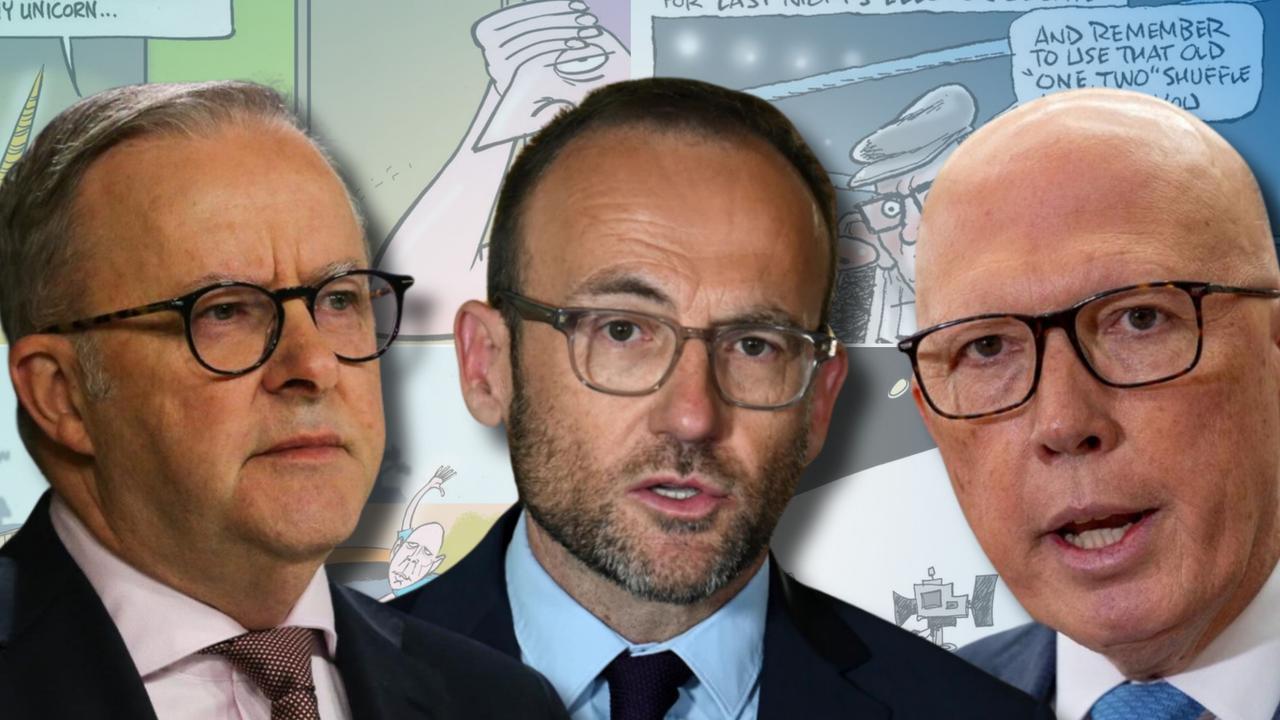Leading economist Warren Hogan calls out two big Budget assumptions that could leave us all poorer
The economic assumptions underpinning the Budget look shaky at best in a world of persistent cost pressures and increasing uncertainty, warns leading economist Warren Hogan.

Opinion
Don't miss out on the headlines from Opinion. Followed categories will be added to My News.
The Budget no one wanted to have has revealed a lacklustre government response to the profound challenges confronting the Australian people and our economy in 2025.
More worryingly, it has also revealed some pretty bold assumptions about employment and immigration which, if they do not materialise, will see even larger deficits out into the future.
The first thing to understand is that the Budget’s targeted spending measures and ‘out of the blue’ tax cuts mean that for the government, short-term political outcomes overshadow long-term economic management.
There are no structural adjustments to fiscal policy settings that are unsustainable, harming productivity and putting an ever-increasing burden on the working age population. Spending continues to grow, taking scarce resources from private enterprise - the driving force for innovation and economic progress.
To rationalise this financial plan as politically constrained by the looming federal election is all but to admit that our political system is struggling to deal with a radically changing economic and political environment.

Teeny weeny tax cuts are a welcome reduction in the tax burden on the Australian people but do nothing to give back the massive increases in income taxes paid by workers over the last three years.
These tax cuts are funded by future generations as the budget remains in stubborn deficit. The income tax take continues to rise year in, year out despite the reduction in the tax rate.
And the economic assumptions underpinning the Budget look shaky at best in a world of persistent cost pressures and rising economic uncertainty.

But here’s what sems to be truly amazing: The Government is expecting the Australian economy to generate a 230,000 increase in employment over the last four months of this financial year.
This optimistic employment assumption lays the foundation for personal income taxes totalling $350bn in the coming year, rising to $420bn by 2028/29.
Even more stark is the government’s high Net Overseas Migration (NoM) assumption for the current year of 335,000. The recent trend in the monthly overseas arrivals and departures data suggests that the NoM numbers fell over the summer. The February net arrivals numbers point to NoM well below 300,000 this year.
Given how problematic the immigration issue is for the Government why would they overstate immigration numbers? Why indeed.
The NoM numbers underpin the labour force and employment assumptions in the Budget
What happens to the Budget if employment doesn’t surge? Is the $42bn deficit going to be $60bn? Does this mean that the $17bn of tax cuts will be funded entirely from higher debt levels?
This forecast of surging employment isn’t going to happen unless the economy takes off like a rocket ship in the next few months. But the Budget assumes inflation is going to fall and remain at 2.5% forever. Is that a sensible expectation in a world of tariffs and trade disputes?
The Budget assumes two more rate cuts from the RBA.
How can the RBA cut rates if the economy and employment are surging?
A government Budget should be underpinned by conservative economic forecasts. This has been a hallmark of the federal Treasury for decades. Why are they now taking such strong views on economic outcomes? It doesn’t make sense.
Warren Hogan is managing director of EQ Economics




